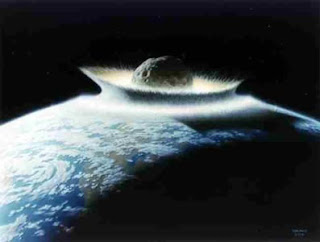Ludim Bello.
Adrian Cervantes.
Carlos Reyes.
Marine Science.
Uniformitarianism or Catastrophism.
 Uniformitarianism is the belief or principle that the past history of the earth and its inhabitants is best interpreted in terms of what is known about the present. Uniformitarianism explains the past by appealing to known laws and principles acting in a gradual, uniform way through past ages. In the mid-seventeenth century, biblical scholar and Archbishop James Ussher determined that the earth had been created in the year 4004 BCE. Just over a century later James Hutton, known as the father of geology, suggested that the earth was much older and that processes occurring in the present were the same processes that had operated in the past, and would be the processes that operate in the future.
Uniformitarianism is the belief or principle that the past history of the earth and its inhabitants is best interpreted in terms of what is known about the present. Uniformitarianism explains the past by appealing to known laws and principles acting in a gradual, uniform way through past ages. In the mid-seventeenth century, biblical scholar and Archbishop James Ussher determined that the earth had been created in the year 4004 BCE. Just over a century later James Hutton, known as the father of geology, suggested that the earth was much older and that processes occurring in the present were the same processes that had operated in the past, and would be the processes that operate in the future.
Catastrophism is the theory that the Earth has been affected in the past by sudden, short-lived, violent events, possibly worldwide in scope. Catastrophism developed in the seventeenth and eighteenth centuries when tradition and even the law forced scientists to use the Bible as a scientific document. Theologians (religious scholars) of the time believed Earth was only about 6,000 years old (current scientific research estimates Earth to be 4.5 billion years old). Based on this thinking and the supernatural events described in the book of Genesis in the Bible, geologists concluded that fossils of ocean-dwelling organisms were found on mountain tops because of Noah's flood. The receding flood waters also carved valleys, pooled in lakes, and deposited huge boulders far from their sources.

No comments:
Post a Comment